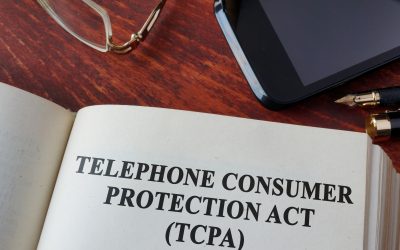A client recently approached M&M inquiring how M&M will review for compliance with PTE 2020-02 within our wealth management audit program. The below outlines some significant provisions of PTE 2020-02 and how M&M will address this topic in upcoming wealth management internal audits.
The Employee Retirement Income Security Act of 1974 generally prohibits fiduciaries from receiving compensation directly or indirectly from third parties in connection with transactions involving ERISA plans or IRAs. The U.S. Department of Labor’s Prohibited Transaction Exemption 2020–02, Improving Investment Advice for Workers & Retirees became effective February 16, 2021. DOL delayed enforcement until February 1, 2022 for prohibited transaction claims relating to investment advice against fiduciaries who work diligently and in good faith to comply with PTE2020-02 and with the DOLs Impartial Conduct Standards. DOL further delayed enforcement of documentation and disclosure requirements for rollovers through June 30, 2022.
The fiduciary must meet certain requirements to take advantage of the exemption. The main principle, however, is to always serve as a fiduciary: acting in the best interest of the client. The most significant requirements within PTE 2020-02 include:
- Acknowledging your fiduciary status in writing.
- Disclosing services and material conflicts of interest. [Is the fiduciary receiving any direct or
indirect fees or other compensation?] - Adhering to Impartial Conduct Standards, including:
- Investigating and evaluating investments, providing advice, and exercising sound judgment in
the same way that knowledgeable and impartial professionals would (i.e., their
recommendations must be “prudent”). - Acting with undivided loyalty to retirement investors when making recommendations (in
other words, they must never place their own interests ahead of the interests of the
retirement investor, or subordinate the retirement investor’s interests to their own). - Charging no more than reasonable compensation and complying with federal securities laws
regarding “best execution”. - Avoiding making misleading statements about investment transactions and other relevant
matters.
- Investigating and evaluating investments, providing advice, and exercising sound judgment in
- Adopting policies and procedures prudently designed to ensure compliance with the Impartial
Conduct Standards and to mitigate conflicts of interest that could otherwise cause violations of
those standards. - Documenting and disclosing the specific reasons that any rollover recommendations are in the
retirement investor’s best interest. - Conducting an annual retrospective compliance review.
The exemption is principles based and focuses on the Department of Labor’s Best Interest Contract
exemption and the Impartial Conduct Standards contained therein. M&M’s audit approach will emphasize
controls including reviewing policies, procedures, disclosures, training, and documentation. M&M does not
practice law; our review of disclosures and documentation will be at a high level and will include discussions
with management on how the disclosures and documentation was or will be developed.
Please reach out to Scott White, Keith Denecker, Andy Jones, or Don George, should you have questions
on this topic.
M&M Consulting issues written guidance/opinions from research of regulatory statutes as part of its
service to clients; however, M&M does not provide legal opinions or interpretation of law and all
decision-making responsibilities are retained by the institution’s management. Our opinions are not
legal advice, which should be sought from legal counsel.





0 Comments